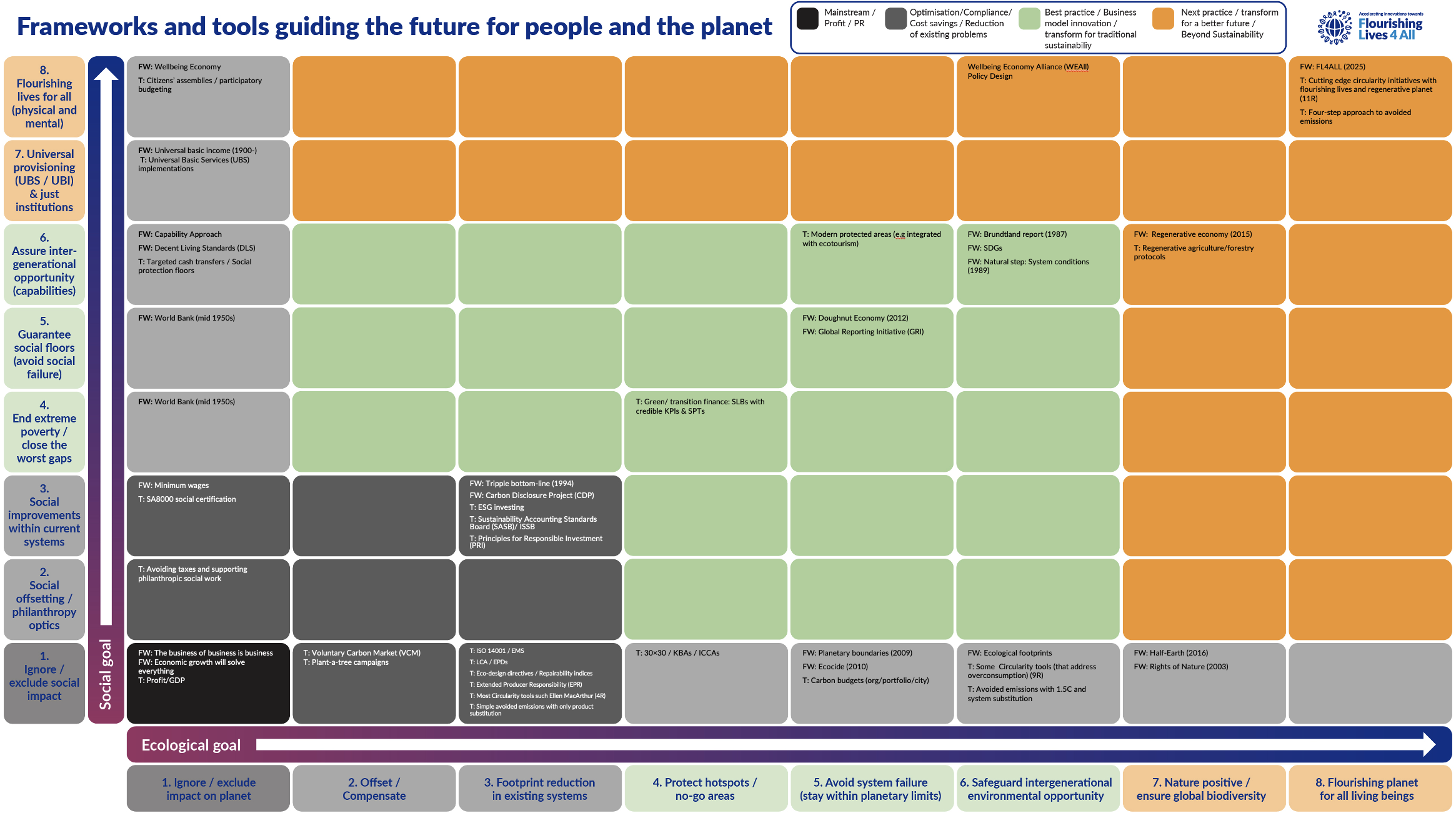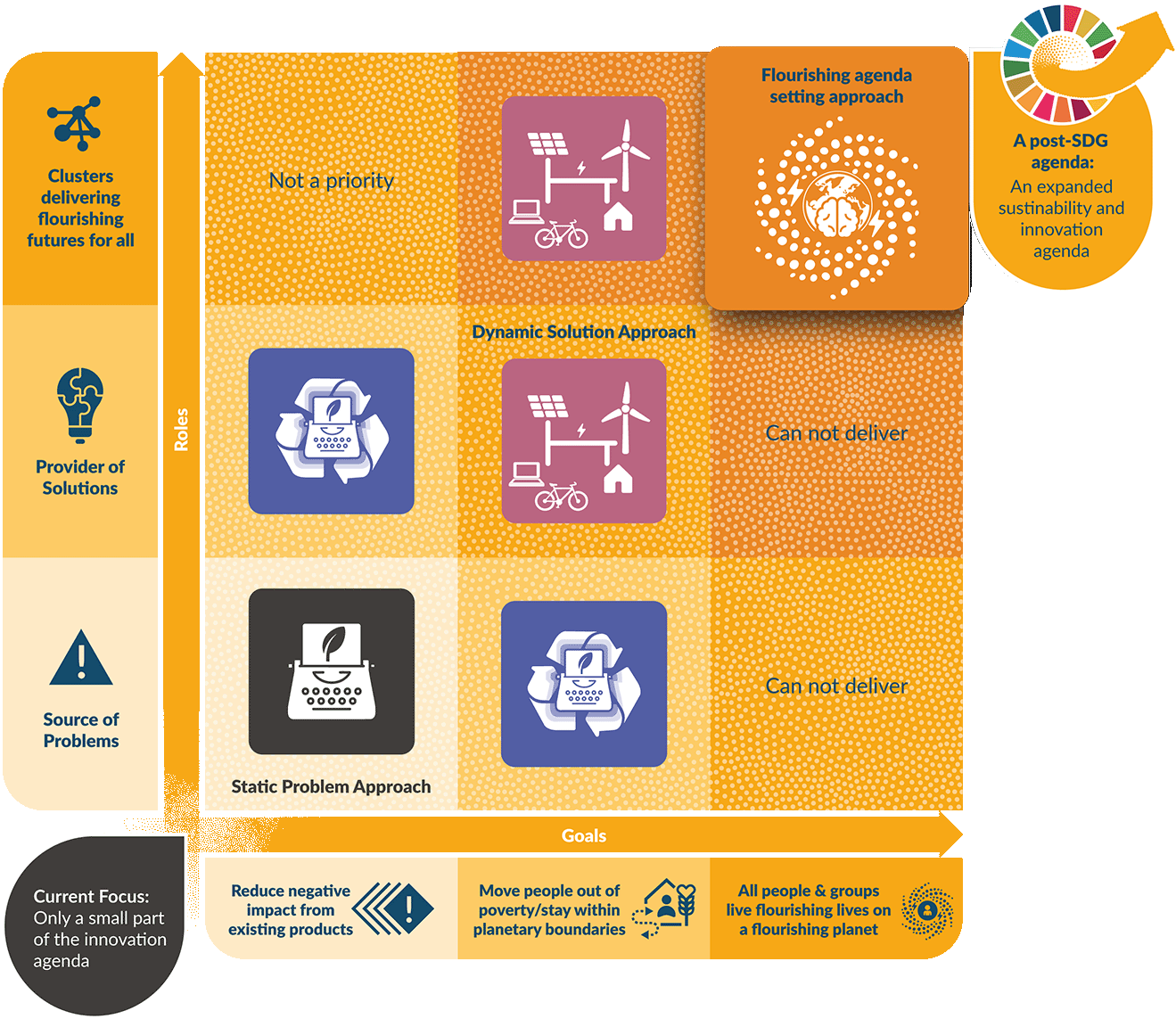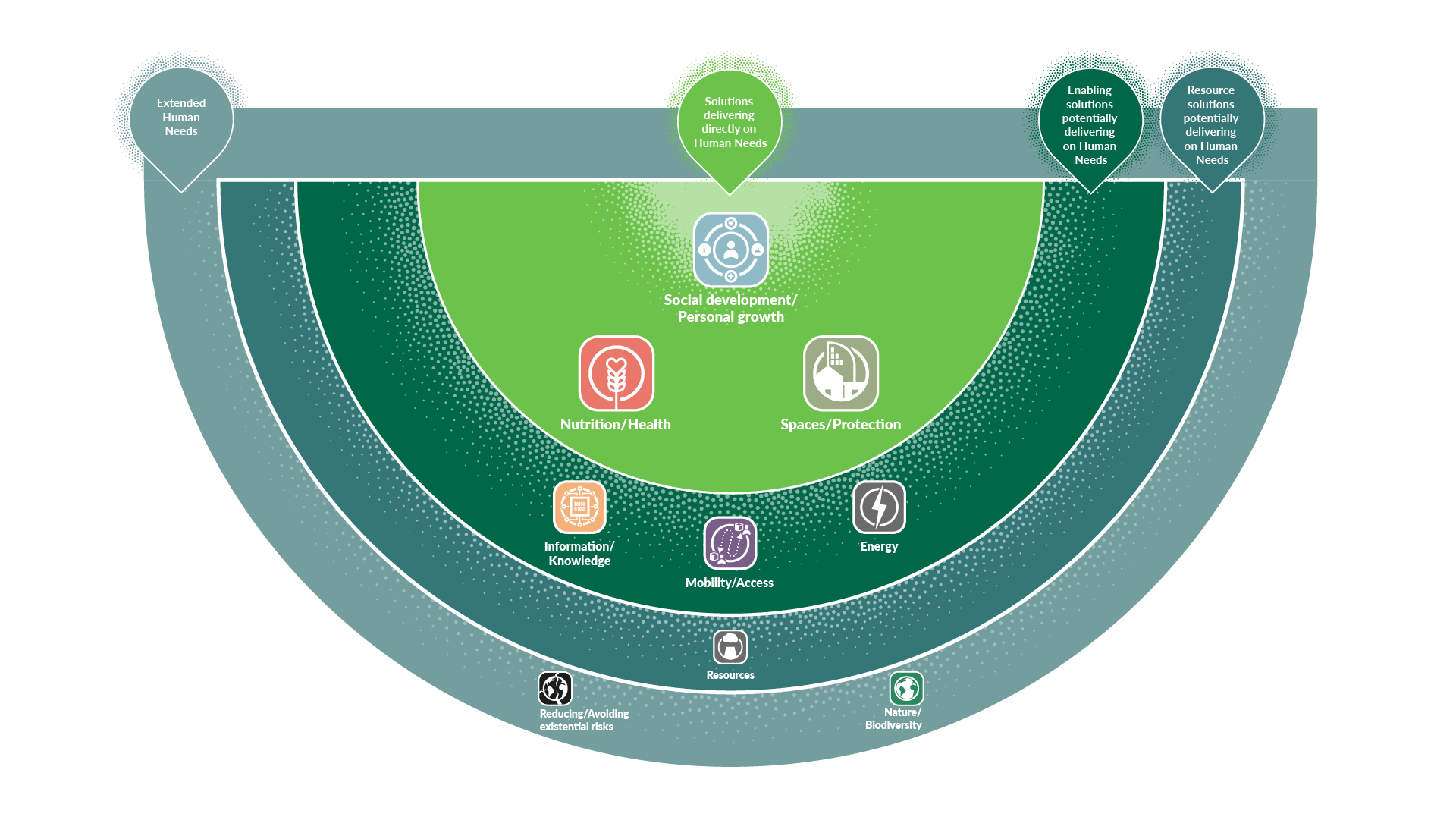Flourishing lives for All (FL4ALL)


Flourishing Lives for All (FL4ALL)
Flourishing Lives 4 All (FL4ALL) emerged from Mission Innovation Net-Zero Compatible Innovations Initiative (NCI) in 2025. Together with partners, we identified the need for an initiative that focuses on a positive vision for the future, rather than only focusing on what we need less of. Hence, the focus is a future where 8-12 billion people live flourishing lives on a flourishing planet. This requires us to look beyond the traditional sustainability discussion towards a post-SDG agenda with a positive vision.
The timing is also perfect with rapidly emerging solutions in areas such as AI, robotics, biotech, material science and nanotech, but probably even more important are the rapid policy innovation, business model innovation and new ideas that shape tomorrow’s policy frameworks, economic theories, tools, legal innovation and values. The latter innovations shift the Overton window, moving a new generation of ideas and solutions from “unthinkable” to “popular”.

Supporting and developing frameworks and tools for a fantastic future
FL4ALL's goal is to support all those who want to deliver positive impact on the scale and speed that is needed for a future where everyone can live flourishing lives on a flourishing planet. While incremental improvements in old systems can sometimes be helpful, they tend to cement the very assumptions and structures we must change, to deliver meaningful change.
Together with leading international partners, ranging from IPCC and UNFCCC to IEA, OECD, WEF and ICLEI, FL4ALL (and previously NCI) has been a global leader in the work with a solution driven agenda including work on avoided emissions, an expanded innovation and climate/sustainability agenda, and human-need-driven innovation, always with a focus on how to deliver a future where 8-12 billion people can live flourishing lives on a flourishing planet.
At the other end of the spectrum FL4ALL has been a leader in the work with incubators, accelerators, tech parks, start-ups, entrepreneurs, intrapreneurs, and others that are working hands-on with the next generation of solutions for the world.
An expanded innovation and human need driven agenda
The failure over the last decades to deliver the changes needed for sustainable development, the increased understanding of the new opportunities that exist, together with rapidly emerging technologies, business models and values, have resulted in calls for an expanded innovation and human need driven agenda.
Instead of a focus on how current stakeholders, countries, cities, companies, financial organisations, etc. can reduce their current problems, “a static problem approach”, this initiative is built for a “dynamic solution approach”, an approach that focuses on how flourishing lives for all can be delivered in ways that support a flourishing planet. This dynamic solution approach expands the current work in two dimensions:


An expanded innovation and human-need-driven agenda
The failure over the last decades to deliver the changes needed for sustainable development, the increased understanding of the new opportunities that exist, together with rapidly emerging technologies, business models and values, have resulted in calls for an expanded innovation and human-need-driven agenda.
Instead of a focus on how current stakeholders, countries, cities, companies, financial organisations, etc. can reduce their current problems, “a static problem approach”, this initiative is built for a “dynamic solution approach”, an approach that focuses on how flourishing lives for all can be delivered in ways that support a flourishing planet. This dynamic solution approach expands the current work in two dimensions:
- From sources of problems to providers of solutions
Almost all existing tools and frameworks, especially those with a focus on reporting, focus on stakeholders as sources of problems (e.g. emissions/resource use/pollution/stress creation and obesity) where the best they can do is reduce their negative impacts to zero.
An expanded innovation agenda broadens the focus to also include stakeholders as solution providers. The traditional approach results in strategies and goals for “zero”, and “solutions” like offsetting, and creative accounting. The expanded agenda results in goals related to delivery on human needs in ways that are globally sustainable, and solutions that have a positive impact in society.
- From improving current sectors to delivering on human needs
Instead of a focus on improving current sectors and structures, an expanded innovation agenda focuses on how human needs can be met in sustainable ways. With a human-need perspective new clusters become important, and instead of only technical solutions, business model innovation as well as legal innovation, policy innovation, and even ethical innovation become essential.

Mission Innovation
Mission Innovation is a global initiative to catalyse action and investment in research, development and demonstration to make clean energy affordable, attractive and accessible to all this decade. This will accelerate progress towards the Paris Agreement goals and pathways to net zero.
Mission Innovation 2.0, launched on 2 June 2021, is catalysing a decade of action and investment in research, development and demonstration to make clean energy affordable, attractive and accessible for all.
This will accelerate progress towards the Paris Agreement goals and pathways to net zero.
